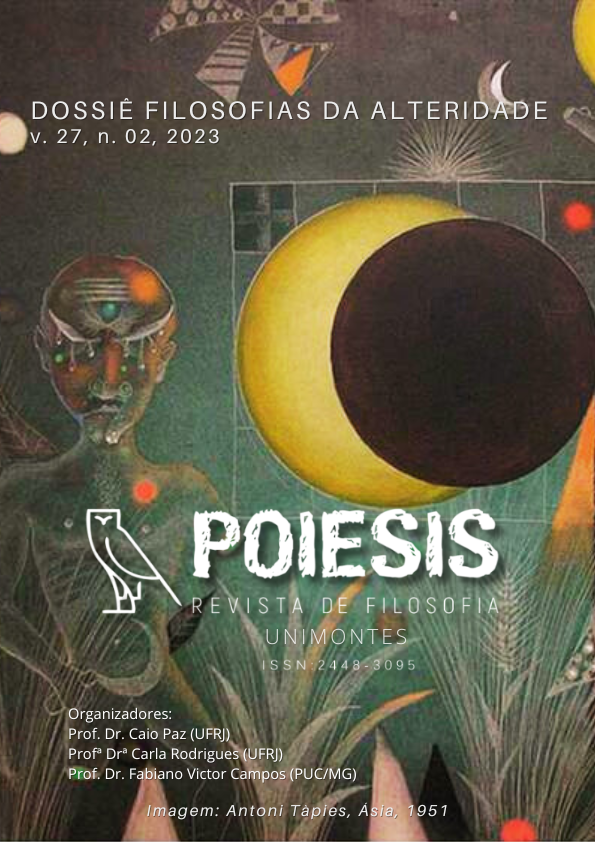THE PHILOSOPHY OF THE ABSURD IN ALBERT CAMUS AND CLARICE LISPECTOR
DOI:
10.46551/2448-30952023v27n212Keywords:
absurdity, existentialism, literature, philosophy, languageAbstract
The article aims to investigate the emergence of the philosophy of the absurd in the essay The myth of Sisyphus by Albert Camus and in the novel The passion according to GH by Clarice Lispector. According to the philosophy of the absurd, consciousness cries out for explanations, wants cohesion between representations and the world, but cannot find a satisfactory answer to its deepest questions. In this context, it is a question of thinking about the rupture of the self with a single image of itself and the path that is outlined for the reconstruction of this unity or its impossibility. In Camus, the divorce with the world takes shape in the feeling of absurdity, which is the starting point for the author's investigation. In Clarice, there is a strangeness with reality and the narrative turns to the character's effort to recognize her internal disorganization. As well as finding in both writers a reflection on a consciousness that is faced with the unknown and the impossibility of identity, it is important to note that this question will require, for both Lispector and Camus, thinking that goes beyond the limits of conceptual language. By asking about a unifying principle or meaning for human life, Albert Camus highlights a conflict that underlies the subject's existential condition. Clarice Lispector's poetic prose also problematizes this conflict, but it does so essentially on an aesthetic level, with the specificities that come from her literature. We will therefore try to observe the way in which they problematize this experience and the ways in which they express it. In the process, it was necessary to evaluate the metaphors, images and relationships established by the authors, making a journey through the philosophy of the absurd in the essayistic and literary register. In this context, the aim is not to solve the problem presented, but to expand the movement that engenders it within the texts chosen, demonstrating that both literature and philosophy make it possible to take a new look at the subject.
Downloads
References
CAMUS, Albert. O mito de Sísifo. Tradução de Ari Roitman e Paulina Watch. Rio de Janeiro. Ed. Record, 2017.
LISPECTOR, Clarice. A Paixão Segundo GH. Rio de Janeiro, Ed. Rocco, 2009.
NASCIMENTO, Evandro. Clarice Lispector: uma literatura pensante. Rio de Janeiro. Ed. Civilização Brasileira, 2012.
________. Filosofia e literatura: diálogos. Juiz de Fora. Ed. UFJF, São Paulo: Imprensa Oficial, 2004.
NUNES, Benedito. Hermenêutica e poesia: o pensamento poético. Editora Humanitas, 2007.
________. O drama da linguagem: uma leitura de Clarice Lispector. Ed. Ática. São Paulo, 1995.
________. O dorso do tigre. Editora Perspectiva. São Paulo, 1969.
Downloads
Published
How to Cite
Issue
Section
License
Copyright (c) 2024 Revista Poiesis

This work is licensed under a Creative Commons Attribution-NonCommercial-NoDerivatives 4.0 International License.





.png)

